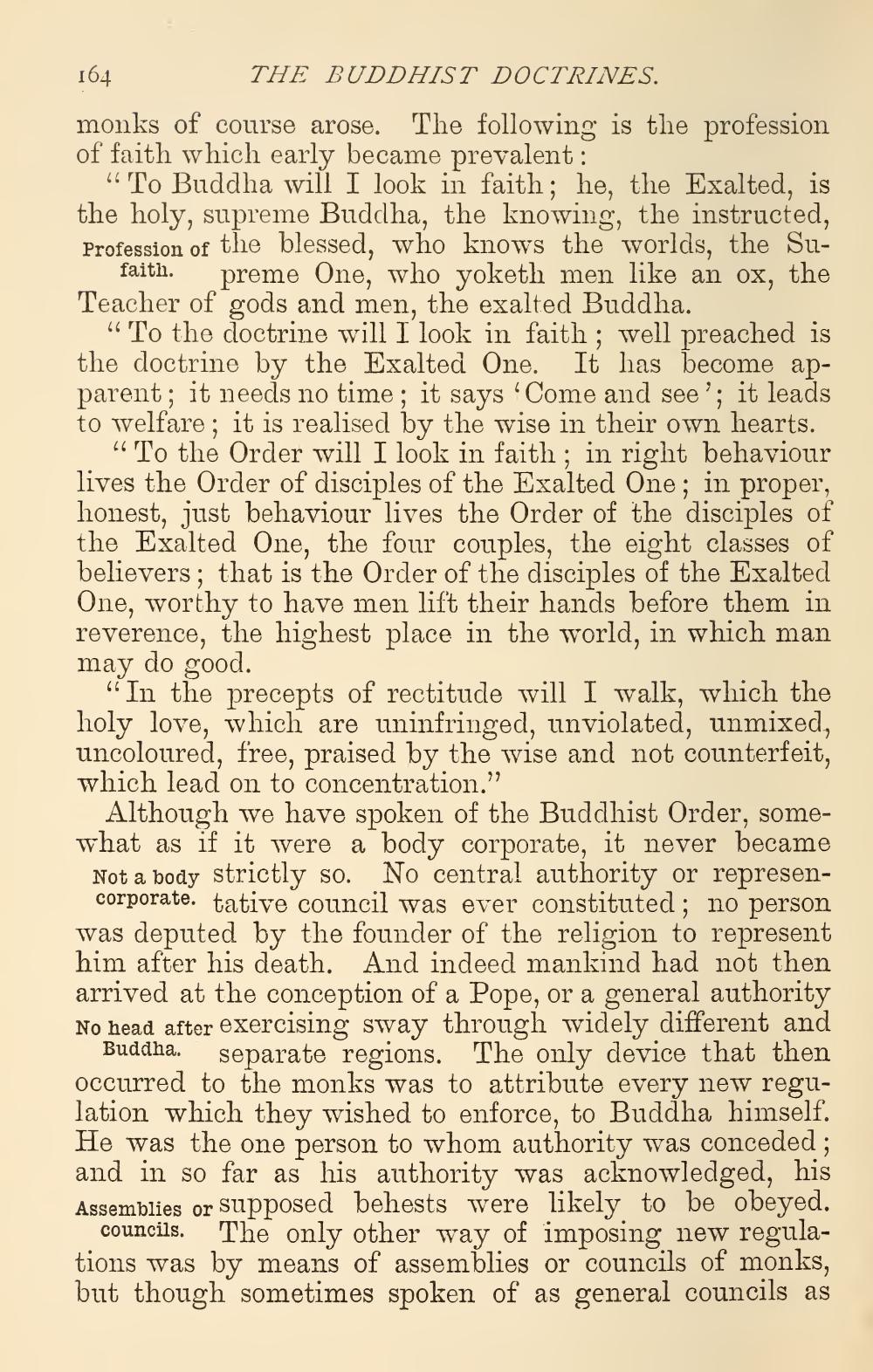________________
164
THE BUDDHIST DOCTRINES. monks of course arose. The following is the profession of faith which early became prevalent:
"To Buddha will I look in faith; he, the Exalted, is the holy, supreme Buddha, the knowing, the instructed, Profession of the blessed, who knows the worlds, the Su
faith. preme One, who yoketh men like an ox, the Teacher of gods and men, the exalted Buddha.
“To the doctrine will I look in faith; well preached is the doctrine by the Exalted One. It has become apparent; it needs no time; it says 'Come and see?; it leads to welfare; it is realised by the wise in their own hearts.
“ To the Order will I look in faith; in right behaviour lives the Order of disciples of the Exalted One; in proper, honest, just behaviour lives the Order of the disciples of the Exalted One, the four couples, the eight classes of believers; that is the Order of the disciples of the Exalted One, worthy to have men lift their hands before them in reverence, the highest place in the world, in which man may do good.
"In the precepts of rectitude will I walk, which the holy love, which are uninfringed, unviolated, unmixed, uncoloured, free, praised by the wise and not counterfeit, which lead on to concentration."
Although we have spoken of the Buddhist Order, somewhat as if it were a body corporate, it never became Not a body strictly so. No central authority or represen
corporate. tative council was ever constituted; no person was deputed by the founder of the religion to represent him after his death. And indeed mankind had not then arrived at the conception of a Pope, or a general authority No head after exercising sway through widely different and
Buddha. separate regions. The only device that then occurred to the monks was to attribute every new regulation which they wished to enforce, to Buddha himself. He was the one person to whom authority was conceded ; and in so far as his authority was acknowledged, his Assemblies or supposed behests were likely to be obeyed.
councils. The only other way of imposing new regulations was by means of assemblies or councils of monks, but though sometimes spoken of as general councils as




